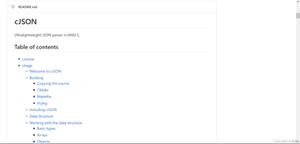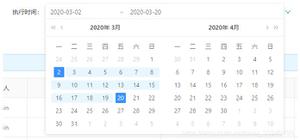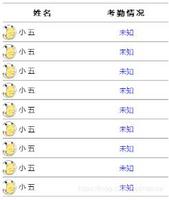STM32使用DMA发送串口数据

1、概述
上一篇文章《STM32使用DMA接收串口数据》讲解了如何使用DMA接收数据,使用DMA外设和串口外设,使用的中断是串口空闲中断。本篇文章主要讲解使用DMA发送数据,不会讲解基础的串口和DMA知识,直接上代码,如果有同学对DMA和串口都不熟悉,建议看一下上篇文章《STM32使用DMA接收串口数据》。
使用DMA发送数据,首先我们要确认使用的串口有没有DMA。
我们使用USART1串口外设,从数据手册中可以查到,USART1的发送和接收都是支持DMA的,使用的是DMA2.
接下来就是撸代码的时刻了
02、代码
DMA串口发送的代码是在上一篇文章DMA串口接收的基础上修改的。
void UART_Init(void){
USART_InitTypeDef USART_InitStructure;
GPIO_InitTypeDef GPIO_InitStructure;
NVIC_InitTypeDef NVIC_InitStructure;
/* Enable GPIO clock */RCC_AHB1PeriphClockCmd(RCC_AHB1Periph_GPIOA, ENABLE);
/* Enable UART1 clock */RCC_APB2PeriphClockCmd(RCC_APB2Periph_USART1, ENABLE);
/* Connect PXx to USARTx_Tx*/GPIO_PinAFConfig(GPIOA,
9, GPIO_AF_USART1);/* Connect PXx to USARTx_Rx*/GPIO_PinAFConfig(GPIOA,
10, GPIO_AF_USART1);/* Configure USART Tx as alternate function */GPIO_InitStructure.GPIO_OType
= GPIO_OType_PP;GPIO_InitStructure.GPIO_PuPd
= GPIO_PuPd_UP;GPIO_InitStructure.GPIO_Mode
= GPIO_Mode_AF;GPIO_InitStructure.GPIO_Pin
= GPIO_Pin_9;GPIO_InitStructure.GPIO_Speed
= GPIO_Speed_50MHz;GPIO_Init(GPIOA,
&GPIO_InitStructure);/* Configure USART Rx as alternate function */GPIO_InitStructure.GPIO_Mode
= GPIO_Mode_AF;GPIO_InitStructure.GPIO_Pin
= GPIO_Pin_10;GPIO_Init(GPIOA,
&GPIO_InitStructure);USART_InitStructure.USART_BaudRate
= 115200;USART_InitStructure.USART_WordLength
= USART_WordLength_8b;USART_InitStructure.USART_StopBits
= USART_StopBits_1;USART_InitStructure.USART_Parity
= USART_Parity_No;USART_InitStructure.USART_HardwareFlowControl
= USART_HardwareFlowControl_None;USART_InitStructure.USART_Mode
= USART_Mode_Rx | USART_Mode_Tx;/* USART configuration */USART_Init(USART1,
&USART_InitStructure);USART_ITConfig(USART1, USART_IT_IDLE, ENABLE);
/* Enable the USARTx Interrupt */NVIC_InitStructure.NVIC_IRQChannel
= USART1_IRQn;NVIC_InitStructure.NVIC_IRQChannelPreemptionPriority
=0;NVIC_InitStructure.NVIC_IRQChannelSubPriority
= 0;NVIC_InitStructure.NVIC_IRQChannelCmd
= ENABLE;NVIC_Init(
&NVIC_InitStructure);/*使能串口DMA接收*/USART_DMACmd(USART1, USART_DMAReq_Rx, ENABLE);
/*使能串口DMA发送*/USART_DMACmd(USART1, USART_DMAReq_Tx, ENABLE);
/* Enable USART */USART_Cmd(USART1, ENABLE);
}
在这里除了常规的串口配置,我们需要配置串口的DMA发送,和串口DMA接收一样的API函数,参数修改为USART_DMAReq_Tx即可。
串口DMA发送配置
void Uart_Send_DMA_Config(void){
DMA_InitTypeDef DMA_InitStructure;
/* Enable DMA clock */RCC_AHB1PeriphClockCmd(RCC_AHB1Periph_DMA2, ENABLE);
/* Reset DMA Stream registers (for debug purpose) */DMA_DeInit(DMA2_Stream7);
/* Check if the DMA Stream is disabled before enabling it.Note that this step is useful when the same Stream is used multiple times:
enabled, then disabled then re-enabled... In this case, the DMA Stream disable
will be effective only at the end of the ongoing data transfer and it will
not be possible to re-configure it before making sure that the Enable bit
has been cleared by hardware. If the Stream is used only once, this step might
be bypassed.
*/while (DMA_GetCmdStatus(DMA2_Stream7) != DISABLE)
{
}
/* Configure DMA Stream */
DMA_InitStructure.DMA_Channel = DMA_Channel_4; //DMA请求发出通道
DMA_InitStructure.DMA_PeripheralBaseAddr = (uint32_t)&USART1->DR;//配置外设地址
DMA_InitStructure.DMA_Memory0BaseAddr = (uint32_t)UART_Buffer;//配置存储器地址
DMA_InitStructure.DMA_DIR = DMA_DIR_MemoryToPeripheral;//传输方向配置
DMA_InitStructure.DMA_BufferSize = (uint32_t)UART_RX_LEN;//传输大小
DMA_InitStructure.DMA_PeripheralInc = DMA_PeripheralInc_Disable;//外设地址不变
DMA_InitStructure.DMA_MemoryInc = DMA_MemoryInc_Enable;//memory地址自增
DMA_InitStructure.DMA_PeripheralDataSize = DMA_PeripheralDataSize_Byte;//外设地址数据单位
DMA_InitStructure.DMA_MemoryDataSize = DMA_MemoryDataSize_Byte;//memory地址数据单位
DMA_InitStructure.DMA_Mode = DMA_Mode_Normal;//DMA模式:正常模式
DMA_InitStructure.DMA_Priority = DMA_Priority_High;//优先级:高
DMA_InitStructure.DMA_FIFOMode = DMA_FIFOMode_Disable;//FIFO 模式不使能.
DMA_InitStructure.DMA_FIFOThreshold = DMA_FIFOThreshold_Full;// FIFO 阈值选择
DMA_InitStructure.DMA_MemoryBurst = DMA_MemoryBurst_Single;//存储器突发模式选择,可选单次模式、 4 节拍的增量突发模式、 8 节拍的增量突发模式或 16 节拍的增量突发模式。
DMA_InitStructure.DMA_PeripheralBurst = DMA_PeripheralBurst_Single;//外设突发模式选择,可选单次模式、 4 节拍的增量突发模式、 8 节拍的增量突发模式或 16 节拍的增量突发模式。
DMA_Init(DMA2_Stream7, &DMA_InitStructure);
/* DMA Stream enable */
// DMA_Cmd(DMA2_Stream7, ENABLE);
}
这里也是常规的DMA配置流程,不明白的同学请看文章《STM32DMA详解》,这里值得注意的是,配置完成并没有使能DMA2_Stream7,使能了就会立即将UART_Buffer的数据发送出去。
其他代码处理
void USART1_IRQHandler(void){
uint8_t temp;
if(USART_GetFlagStatus(USART1, USART_FLAG_IDLE) == SET){
DealWith_UartData();
// USART_ClearFlag(USART1, USART_FLAG_IDLE);temp = USART1->SR;
temp = USART1->DR; //清USART_IT_IDLE标志
}
}
void DealWith_UartData()
{
DMA_Cmd(DMA2_Stream2, DISABLE);
UART_Receive_flg = 1;
UART_Receive_len = UART_RX_LEN - DMA_GetCurrDataCounter(DMA2_Stream2);
UART_Buffer[UART_Receive_len] = 0;
DMA_SetCurrDataCounter(DMA2_Stream2,UART_RX_LEN);
DMA_ClearFlag(DMA2_Stream2, DMA_FLAG_TCIF2);
DMA_Cmd(DMA2_Stream2, ENABLE);
}
int main(void)
{
UART_Receive_flg = 0;
Uart_Reveice_DMA_Config();
Uart_Send_DMA_Config();
UART_Init();
while (1)
{
if(UART_Receive_flg)
{
UART_Receive_flg = 0;
Uart_Send_DMA_Start();
}
}
}
上面3个函数,简单逻辑就是,当串口使用DMA接收了一定量的数据,就会通过串口DMA发送出去,串口DMA发送的代码如下:
void Uart_Send_DMA_Start(void){
DMA_SetCurrDataCounter(DMA2_Stream7,UART_Receive_len);
DMA_ClearFlag(DMA2_Stream7, DMA_FLAG_TCIF7);
/* DMA Stream enable */DMA_Cmd(DMA2_Stream7, ENABLE);
}
03、后记
这一篇很简单,就是DMA使用的一个延伸,上面说了这么多,也贴了很多代码,不可能将所有代码全部贴出来,作为软件工程师,还是在IDE里看代码方便,如果感兴趣的话,可以到下面github链接下载代码,Keil和IAR的工程文件都有。
PCB和工程代码开源地址:
https://github.com/spanercjd/STM32F207VCT6
点击查看本文所在的专辑,STM32F207教程
以上是 STM32使用DMA发送串口数据 的全部内容, 来源链接: utcz.com/z/519705.html







